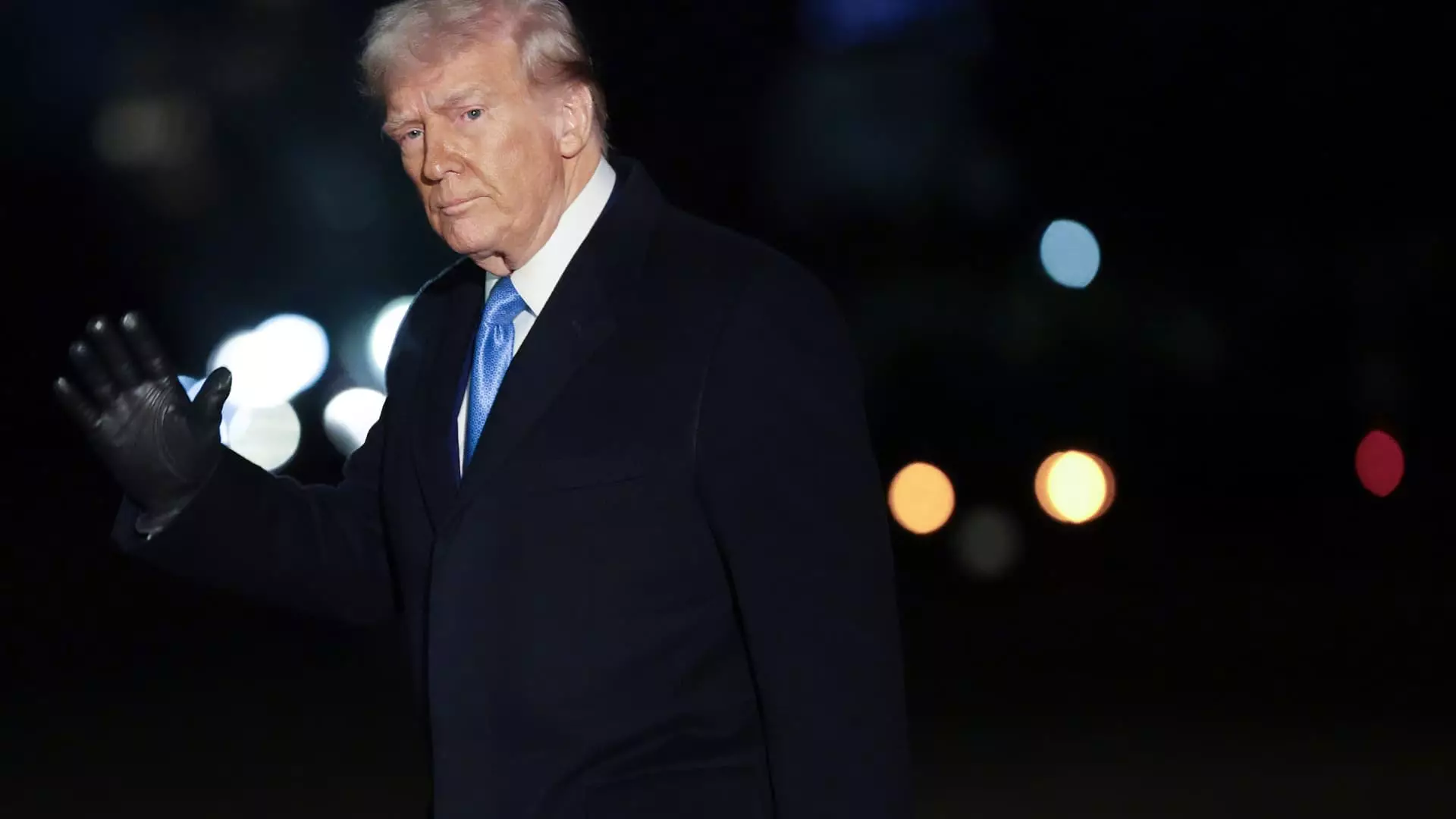In a significant legal development, a federal judge in Maryland has placed a temporary injunction on President Donald Trump’s orders aimed at eliminating diversity, equity, and inclusion (DEI) programs from federal agencies and private businesses contracting with the government. U.S. District Judge Adam Abelson articulated that these directives potentially infringe upon the First Amendment rights guaranteed by the Constitution. This injunction comes amidst a broader context where Trump and various critics have characterized DEI initiatives as discriminatory, echoing concerns about inclusivity and fairness within federal operations.
The orders—notably, an inquiry into DEI policies by the Department of Justice—were fundamentally contested in federal court by the city of Baltimore along with several civil rights organizations. The judge’s ruling reflects a growing disagreement regarding the balance between legislative authority and protected speech, setting the scene for a broader debate on inclusivity in the public sector.
Judge Abelson emphasized that the legal claims presented by the plaintiffs underscored immense potential harm resulting from the Trump administration’s actions, including a “chilling” effect on protected speech. This term, ‘chilling,’ denotes the discouragement from expressing ideas freely, a consequence that the plaintiffs argued would stifle widespread initiatives aimed at fostering inclusion. Abelson’s ruling articulated a clear stance, indicating that the government’s recent initiatives lacked clarity, thereby making it difficult for organizations to ascertain their legal standing under the new directives.
The judge’s assessment acknowledged the historical context of DEI initiatives, asserting that efforts to promote diversity within federal agencies are not merely contemporary social phenomena but have been legally and ethically recognized for decades. Abelson’s critique of the vagueness surrounding Trump’s definition of DEI further bolsters the argument that the administration might have overstepped its authority in targeting legally protected actions.
An important facet of this ruling lies in its implications for the operations of DEI programs already in place. Questions abound regarding whether existing DEI offices—which have reportedly faced closures—and personnel dismissals initiated under the Trump administration can continue unimpeded while the legality of these recent orders is scrutinized. The judiciary’s decision has the potential to reinstate or protect resources previously allocated toward enhancing diversity within government operations unless subsequent rulings dictate otherwise.
As the litigation unfolds, it remains uncertain how such actions taken in the past may be reconciled with the temporary stay granted by the judge. This opens an avenue for affected organizations and individuals to challenge previously implemented measures aiming to dismantle established DEI infrastructure within federal agencies.
The implications of Abelson’s injunction stretch beyond courtroom walls into a sociopolitical landscape characterized by heightened polarization over issues of race, gender, and inequality in the United States. The ongoing debates surrounding DEI programs have intensified, especially following social justice movements that gained momentum in 2020.
Supporters of DEI argue that these initiatives are critical in addressing the systemic disadvantages historically faced by marginalized groups in America. Civil rights advocates assert that these programs are essential to eliminate disparities in employment, pay, and opportunities, arguing that the administration’s push against DEI reflects a broader conservative backlash against inclusivity efforts.
Conversely, detractors, including Trump and his allies, frame DEI initiatives as a form of reverse discrimination that prioritizes race and gender over merit. This perspective highlights an ideological divide that extends into public policymaking and corporate governance, shaping how organizations approach issues of diversity and equity.
The ruling by Judge Abelson serves as a crucial juncture in the ongoing discourse over diversity initiatives, testing the boundaries of executive power and First Amendment rights. As the legal proceedings continue, they will not only determine the future of DEI programs in the federal sphere but may also influence public and private sector policies nationwide.
This case epitomizes the intersection between law, politics, and social issues, prompting all stakeholders—government officials, organizations, and citizens alike—to consider the fundamental question of how diversity and inclusion should be enacted and preserved within modern society. The eventual outcomes may redefine the role of DEI initiatives in American governance, potentially ushering in a new era of dialogue on equality and representation.

